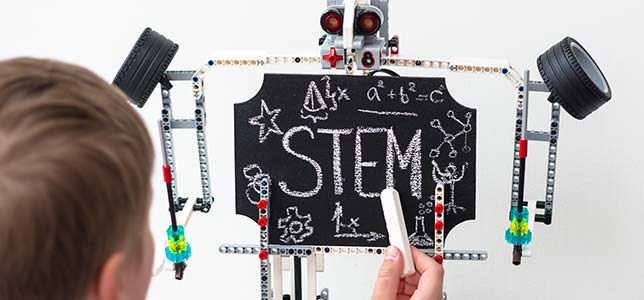$50,000 STEM-Focused Teacher Grant Deadline Approaching

The next deadline is fast approaching for the Toshiba America Foundation (TAF) grants. For projects under $5,000 in grade 6-12 applications are due by Dec. 1. Applications for grants over $5,000 are due Nov. 1.
TAF has announced it will make nearly $50,000 in grants available for 13 innovative K-12 classroom STEM projects.
"TAF grants provide teachers with the tools they need to be more effective educators," TAF President John Anderson said in announcing the grants. "The grants make the STEM classroom more exciting for both teachers and students."
The program will support projects around global issues such as climate change and food, water, and air quality. The foundation takes a "direct-to-teacher" grant-making approach, with an eye toward helping teachers strengthen enhance the way they teach STEM subjects. Grants support equipment for hands-on experiments and project based learning.
The foundation reports that Coronado K-8 School in Tucson, AZ will use TAF funds to help students understand the global climate change issue by developing an atmospheric chamber to simulate sea water to learn how change of temperature and salinity of the sea water impact concentrations of carbonic acid.
In Durham, NC, educators at the Durham School of the Arts will utilize TAF funds to develop portable weather stations to analyze air quality in urban environments. At South Valley Academy in Albuquerque, NM students will prototype solutions around hunger and water collection systems.
Other featured grants in grades 6-12 help demonstrate the breadth of projects supported by TAF. They include a robotics-based project, support for an 8th-grade electronics course, a biotech lab focused on DNA, and a hands-on digital fabrication project, among others.
TAF money does not support general operations, capital projects, endowments, conferences, independent study, fund raising events, or similar activities. After-school, summer projects and independent study projects are not eligible.
About the Author
Based in Annapolis, MD, Adam Stone writes on education technology, government and military topics.